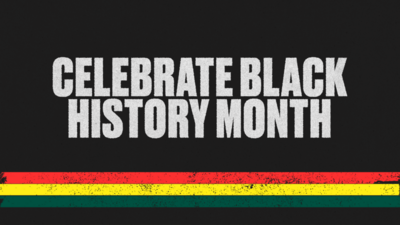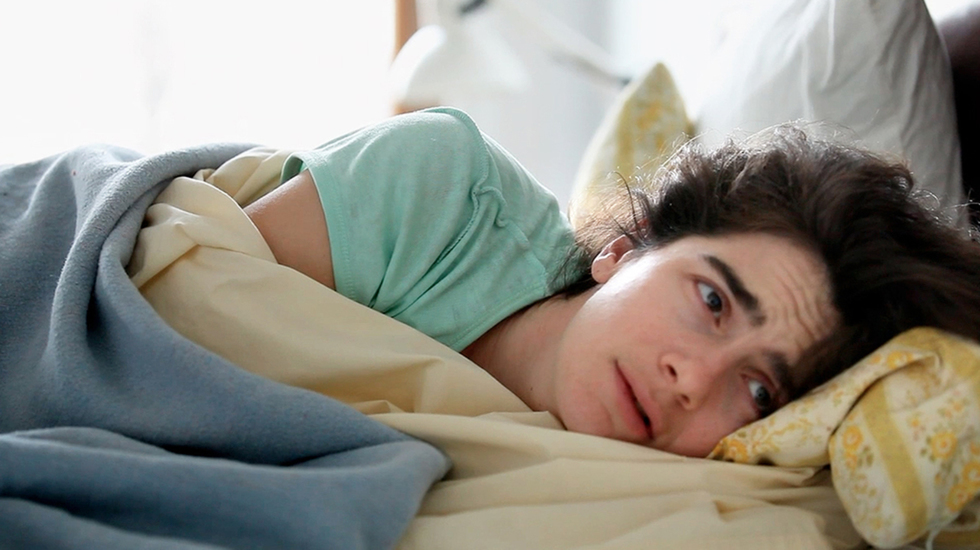
BY ZACHARY WIGON |
Interview: Stewart Thorndike On Giving Her Movie 'Lyle' Away For Free
First time feature helmer Stewart Thorndike talks through the innovative release strategy for her debut film, which came out today on the web - for free.

Self-distribution is one of those hot-button subjects that catches more light than heat in the independent film world; it is often discussed, but hardly employed with the same frequency. It was striking to learn, then, that writer/director Stewart Thorndike was going the self-distribution route with her debut feature Lyle, which premiered to a great response at LA's Outfest this past month, and which screened more recently at NewFest at Lincoln Center. (Full disclosure: the producer of Lyle, Alex Scharfman, was one of the producers on my feature The Heart Machine.)
Lyle certainly has a commercial premise - something of a contemporary reworking/reimagining of Rosemary's Baby, it concerns the tension that begins to sprout when one of the members of a lesbian couple (Gaby Hoffmann) begins to suspect that her partner (Ingrid Jungermann) may have engaged in some sort of foul play with respect to their child. As Hoffmann spends more and more time in her beautiful Park Slope apartment alone, we see her begin to unravel in an alarming, visceral fashion. Despite the film's commercial appeal, Thorndike and her team have decided not only to self-distribute, but to give the film away for free; it will be available to all starting August 4th at lylemovie.com. I had the chance to speak with Thorndike recently about this bold and innovative distribution choice.
The whole nature of independent film is scraping together for a project and then handing it over.
Tribeca Film: What has the festival experience with the film been like?
Stewart Thorndike: I don't think we knew it was going to have a festival life, so just being in any festival was a win. We'd made it to be a web series, but then I realized I liked it as a single piece. We were invited to Outfest and then Newfest, and I was really overwhelmed by how much people responded to it. It was a really positive experience, we filled the house both times. It's weird - I would show the film on small screens for feedback at times, but to show it on the big screen, especially when it's a horror film, people are feeding off the energy - it works so much better on the big screen.
Tribeca Film: What led you to decide to make it as an individual feature rather than a web series?
ST: Well, people watch web series, it seems, when they're at the office and they have five minutes free. With a horror film, you want people to invest, to get lost in the story. I thought it would be cool to do a horror web series - I hadn't seen that before, and I still think that's a cool idea - but then we ended up shooting more and making it this feature, or featurette - it's 65 minutes. I think we knew we had a movie on our hands. It was funny, we went to these festivals and we had lots of people interested in distributing the film, talking about the traditional route of distribution, and after premiering the film we had all these options. So it was a hard decision to launch it for free online.
Tribeca Film: Why was that?
ST: I was a little dazzled by all these people reaching out regarding distribution. But in the end, we knew we'd made the film in a non-traditional way and we wanted to launch it in a non-traditional way. But there was a week after my premiere in New York where I was having a harder time deciding to do this.
Tribeca Film: What was that decision-making process like, of deciding to go with self-distribution?
ST: We went with self-distribution, despite other options, because I have so many friends that have had movies do really well at festivals, get bought, and then they just go into this limbo where they have no control over what happens to their film once it's bought. Having been in a pattern of waiting for other people to give me what I want, which was something that began when I was developing a feature called Tacoma, a thriller with women, a great cast - we could never find the funding for it - so because of that I wanted to make Lyle for cheap, have control over it. So having people interested in distributing it, it was a conflict, but I thought back to why I made the film - I wanted to know that, after this buzz, I'd be able to let people go see my movie.
Tribeca Film: Obviously, with the traditional distribution route, you have an independent filmmaking investing a lot of time and energy into a product that then is more or less entirely handed over to someone else.
ST: That's exactly it. The whole nature of independent film is scraping together for a project and then handing it over. The sad thing is, even the good deals don't even seem to be that good - people, so often, don't seem to really be able to see the movies - maybe they go up in a theater for a few days, but that's it.
Instead of paying to see the movie, you pay, if you liked the movie, to see the next movie get made.
Tribeca Film: So how will Lyle be presented online?
ST: Well, we have this master plan, which is that I want to make three female-driven horror films. We made Lyle for next to nothing really quickly, and are releasing it for free to coincide with a Kickstarter to raise funds for the next film, which is a haunted TED talk called Putney, which we hope to shoot in the fall. By releasing the film for free, we hope that people who want to support female-driven horror films, we hope they'll support the next film. So the film will be released on August 4th at Lylemovie.com, and at the same time we'll start the Kickstarter for Putney.
Tribeca Film: So Lyle's release is sort of a tool for inciting donations for the next film.
ST: Exactly. Instead of paying to see the movie, you pay, if you liked the movie, to see the next movie get made.
Tribeca Film: That's an excellent idea.
ST: I think it's really difficult for women to get funding for films, and especially for films that have female leads, but I think there is a market for it. This is a way to find an audience. There's also not really very many women making horror films - a handful of them, at best.
Tribeca Film: As a woman embarking upon making a horror film, did you feel yourself hitting certain barriers you may not have hit, had you not been a woman?
ST: Well, because I didn't need to raise any money, I knew I was going to make Lyle with a tiny amount of money I could scrape together myself, I didn't have to reach out to people. But I was going to make this thriller Tacoma, and I had a fantastic cast, and if those actresses had been the male star equivalents, I think I would have gotten the money - it was a genre film, it was under a million dollars, we had big names. I did feel like, when I tried to do that, it was just, no, no, no. But when I made Lyle I didn't realize there were so few women making horror films. Also, when I first thought of the idea for Lyle, I thought it would be interesting to make a genre film with a lesbian couple, where the story wasn't about how hard it is to be gay. I really wanted that. So there are a number of things about Lyle that made it a little different, a little harder to fund, but I think there's an audience for it.
Tribeca Film: You guys did have a great, known lead actress - Gaby Hoffman - which is exceptional for a micro-budget film. How did she come to be involved?
ST: I think Gaby is a great artist. I knew her socially a bit, and I wanted to work with her. When I wrote this, in my head it was always for Gaby, but I didn't know if she would do it. She was receptive and we met for coffee, and she was really game to do anything. I told her it was basically for no money, and she was just game, insanely good. We just had to keep nailing it, and she did. She has great ideas, too - she was a great collaborator. She never let it stray into campy, which I didn't want it to be.
I thought it would be interesting to make a genre film with a lesbian couple, where the story wasn't about how hard it is to be gay.
Tribeca Film: So what's next in your trilogy of horror films?
ST: The next film is called Putney, and it's about a haunted TED talk. This woman gets really inspired by this TED talk about vulnerability and warming up to her loved ones, so she brings her estranged girlfriend and best friend on this camping trip, and the friend ends up bringing a stranger along who just keeps getting weirder and weirder, and they get injured, and they all end up getting stuck in an abandoned hotel in the middle of the woods, and they have to deal with this strange woman who is hurt, and the TED talk begins giving the main character some strange advice.
Tribeca Film: Sounds like some great closed-quarters horror - a bit like Lyle. Is it bigger budget?
ST: It's still a low budget film but it's much bigger than what we did Lyle for. It does take place in one location, mostly. We're talking to one actress right now, so we'll see what happens.
Tribeca Film: Could you see yourself doing this with more traditional distribution, or would you self-distribute?
ST: We're thinking that this will be primarily crowdfunded, and will live primarily outside the system, but we're not ruling anything out.
